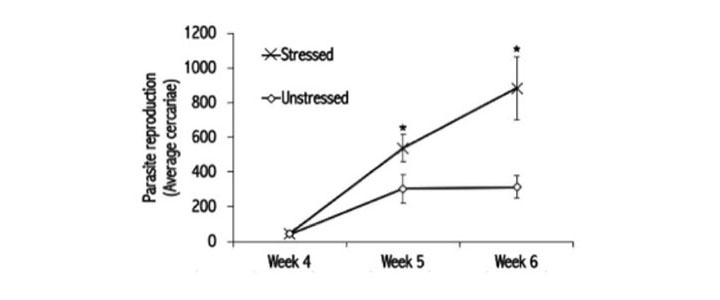Impact of Drought on Disease using a Human Parasite System
11-10-2016

Alyssa Gleichsner, an EEB graduate student, Jessica Cleveland, a recent Purdue undergraduate, and Dennis Minchella published a study in the journal Evolution (2016) 70(11): 2640-2646 which investigates the impact of drought on disease using a human-parasite system. Climate change stressors will place different selective pressures on both parasites and their hosts, forcing individuals to modify their life history strategies and altering the distribution and prevalence of disease. Few studies have investigated whether parasites are able to respond to host stress and respond by varying their reproductive schedules. Additionally, multiple environmental stressors can limit the ability of a host to respond adaptively to parasite infection. In this study we compared both host and parasite life history parameters in unstressed and drought-stressed environments using the human parasite, Schistosoma mansoni in its freshwater snail intermediate host. We found that snail hosts infected with the parasite demonstrated a significant reproductive burst during the pre-patent period (fecundity compensation), but that response was absent in a drought-stressed environment. This is the first report of the elimination of host fecundity compensation to parasitism when exposed to additional environmental stress. More surprisingly, we found that infections in drought-stressed snails had significantly higher parasite reproductive outputs than infections in unstressed snails. The finding suggests that climate change may alter the infection dynamics of this human parasite.